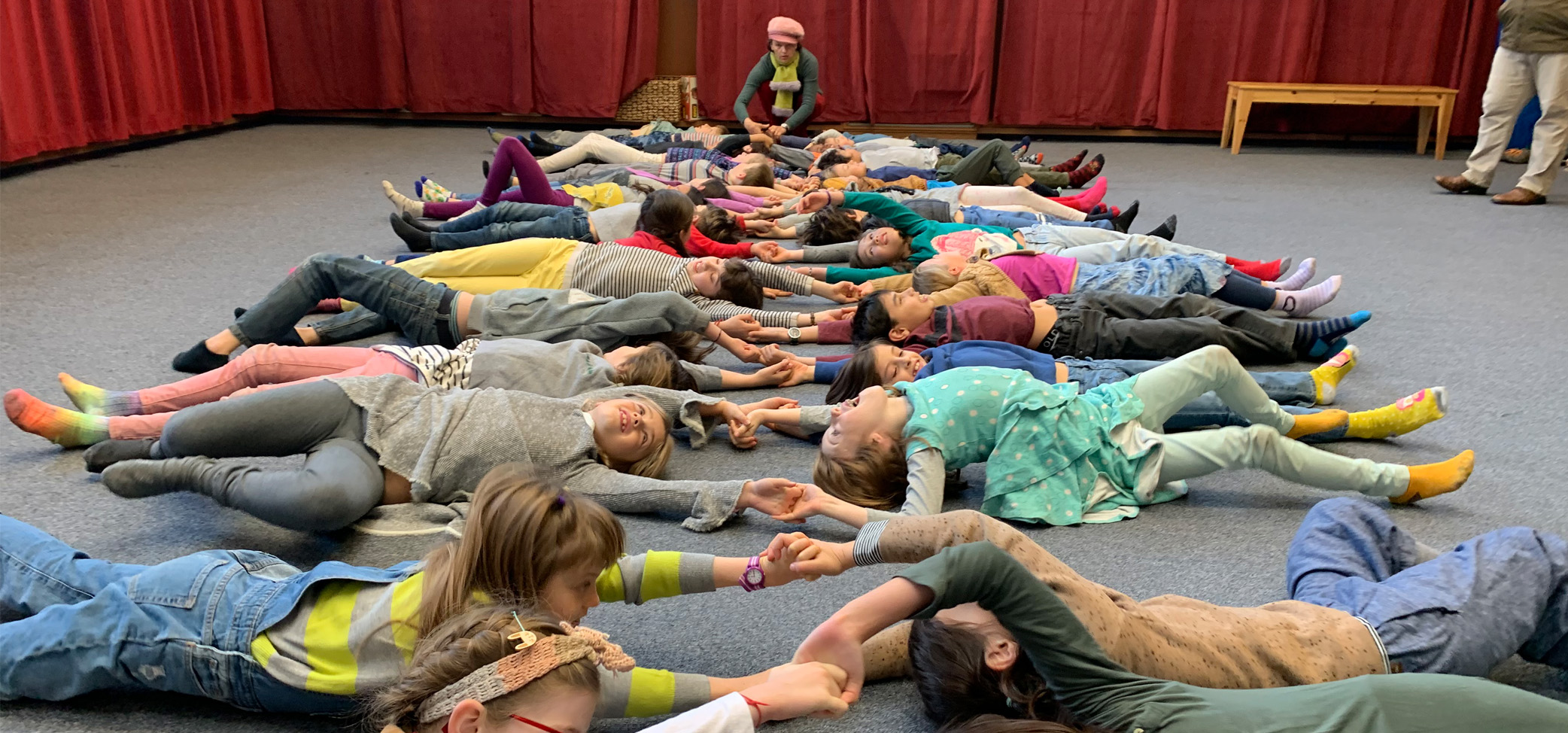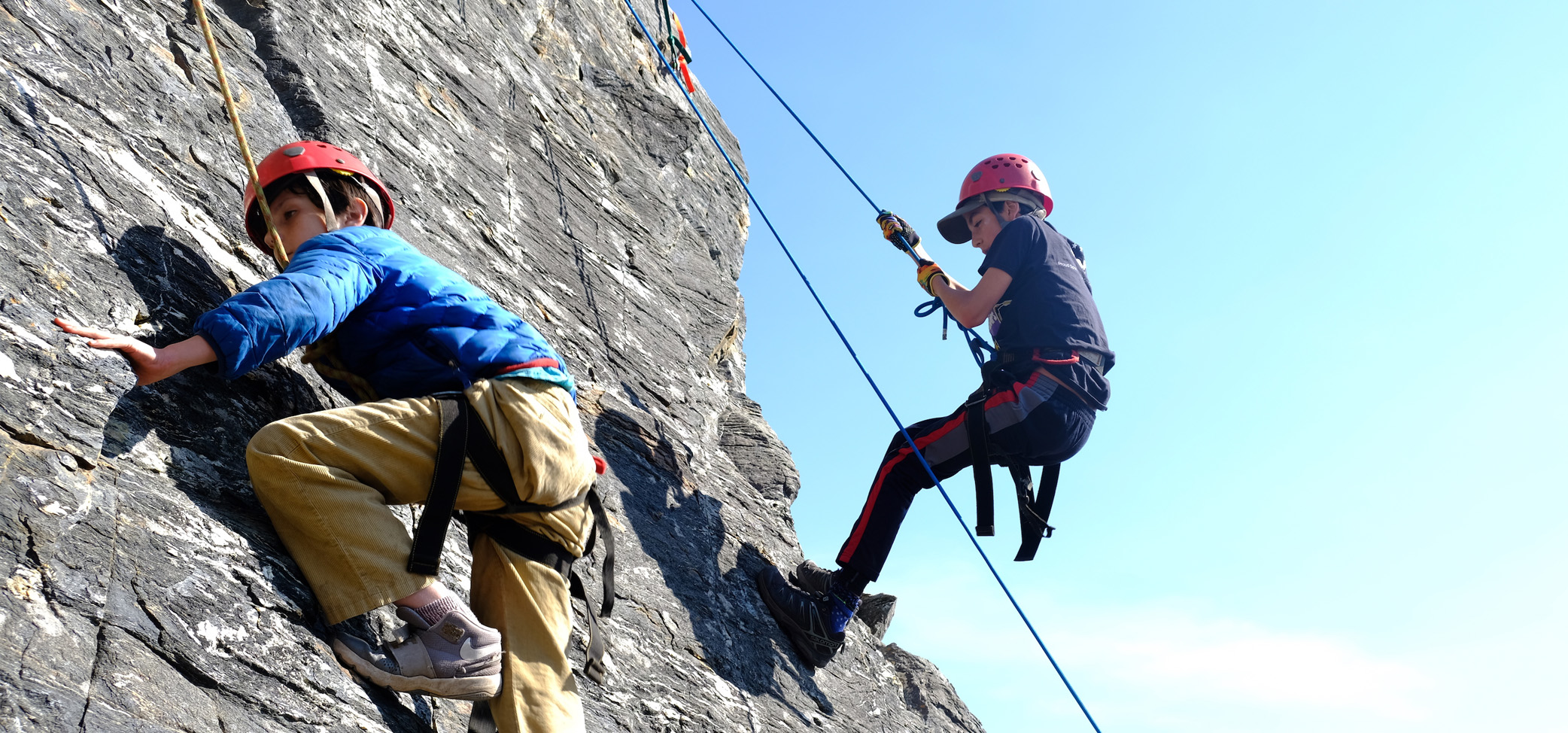Grades Program
An education that nurtures and inspires the natural imaginative abilities which all children have in abundance.
Learning to learn and loving to learn is what ensures success in life. Helping children find that love of learning means they can excel at anything they choose to do.
Children are seeds: everything they will become is already contained within
Grades Program
An educcation that nurtures and inspires the natural imaginative abilities which all children have in abundance.
Learning to learn and loving to learn is what ensures success in life. Helping children find that love of learning means they can excel at anything they choose to do.
Children are seeds: everything they will become is already contained within.
Educating children to meet the world with purpose, gratitude and respect
Education in its truest sense comes not from knowing the right answers but in learning how to ask insightful questions.
Teaching students in accordance with their developmental stages, awakens them to the experience of knowledge, strengthens their sense of moral responsibility, and empowers them to act with courage and conviction.
Grade 1
Children transition from the familiarity of home or kindergarten into a more formal learning environment.
Class teachers work out of the unity of the class to develop strong habits.
Circle activities; songs and games teach cooperation.
Large and small motor skills are developed each day through play, movement activities, games and artistic work.
Grade 2
Children are newly experiencing a sense of polarity between right and wrong, good and bad, beautiful and ugly. These polarities are met by stories of the fables and holy people.
Intensive work is done with the four operations and introduction to place value. The work relies greatly upon mental math strategies rather than placing emphasis on written calculations.
Memorization of the times tables will first enter the children’s bodies through movement and rhythm.
Grade 2
Children are newly experiencing a sense of polarity between right and wrong, good and bad, beautiful and ugly. These polarities are met by stories of the fables and holy people.
Intensive work is done with the four operations and introduction to place value. The work relies greatly upon mental math strategies rather than placing emphasis on written calculations.
Memorization of the times tables will first enter the children’s bodies through movement and rhythm.
Grade 3
Children leave the world of imitation and experience a profound inner change: self-consciousness and greater individuality begin to unfold.
Stories of people crossing the rubicon and starting life anew are told.
Children are given countless experiences of the work of the real world in practical and meaningful ways.
A new understanding of what it is to leave the imaginative world, enter the real world, and begin to stand on their own is developed.
Grade 4
Children start to make decisions or take steps that commit them to a specific course of action, which symbolizes the embarking on their life path.
Now, with the accumulation of more skills, children marvel at the beauty and mystery of the natural world.
They learn and research the various parts that comprise our world – from mythological figures of the Norse Gods and Native American stories, to our animal friends in the study of zoology.
Even numbers become parts with the introduction of fractions.
Grade 4
Children start to make decisions or take steps that commit them to a specific course of action, which symbolizes the embarking on their life path.
Now, with the accumulation of more skills, children marvel at the beauty and mystery of the natural world.
They learn and research the various parts that comprise our world – from mythological figures of the Norse Gods and Native American stories, to our animal friends in the study of zoology.
Even numbers become parts with the introduction of fractions.
Grade 5
Greek idealism of the human form manifests in the graceful children.
Agile and glowing, sports and gymnastics encompass every morning before the stories of ancient civilizations are told each day.
Classic literature and other relevant cultural themes are explored through sculpture, music and drama.
Scientific inquiry into the world of botany begins along with geometry, and geography of ancient lands.
Grade 6
History begins with the transition from ancient to modern history, from poetic consciousness to a search for truth in the form of scientific concepts.
Grammar, vocabulary enrichment, writing structure and composition, and speech through drama are the language studies woven throughout the curriculum as students present and create written records of their learning.
The physical sciences include the study of acoustics, heat, magnetism, static electricity, and optics.
Geography studies the earth’s configuration and contrasts: distribution of oceans, seas, continents and mountain masses with the introduction of climate studies and first astronomical concepts.
Mathematics introduce percentages, interest, profit and loss, ratios, proportion, estimation and introduction to algebraic equations.
Grade 6
History begins with the transition from ancient to modern history, from poetic consciousness to a search for truth in the form of scientific concepts.
Grammar, vocabulary enrichment, writing structure and composition, and speech through drama are the language studies woven throughout the curriculum as students present and create written records of their learning.
The physical sciences include the study of acoustics, heat, magnetism, static electricity, and optics.
Geography studies the earth’s configuration and contrasts: distribution of oceans, seas, continents and mountain masses with the introduction of climate studies and first astronomical concepts.
Mathematics introduce percentages, interest, profit and loss, ratios, proportion, estimation and introduction to algebraic equations.
Grade 7
A year of exploration!
With increasingly rigorous academics, students enter adolescence with a growing sense of self-reflection and introspection.
Algebra and plane geometry are introduced, along with the interrelationship of chemical properties, physical laws of refraction, reflection, heat, electricity and magnetism, simple machines, and physiology.
The Renaissance, Reformation, Scientific Revolution, and Age of Exploration are the primary thematic units in seventh grade.
Creative Writing is a new subject this year, where writing prompts and guidelines provide the structure into which a student’s creative thoughts can find voice and clarity.
Grade 8
Simultaneously delving into self-discovery and holding a deep curiosity about today’s world, the Eighth Grader stands poised to deepen academic exploration and move toward a sense of being a global citizen.
Independent and group projects call on students to pair their academic skills with a sense of responsibility, and to prepare their research skills for high school.
History, the five Platonic Solids, and the study of climate and weather patterns in Meteorology emphasize both the social and the physical aspects of the modern world.
World geography – involving the physical, cultural and economic layers, and revolutions make up the social studies portion of the curriculum, where biographies of courageous individuals illustrate the power of determination, perseverance, and working within and for one’s communities to bring healthy change when systems are not supporting the equal rights of all people.
Mathematics includes algebra, the quadratic equation, and geometry including the platonic solids.
Grade 8
Simultaneously delving into self-discovery and holding a deep curiosity about today’s world, the Eighth Grader stands poised to deepen academic exploration and move toward a sense of being a global citizen.
Independent and group projects call on students to pair their academic skills with a sense of responsibility, and to prepare their research skills for high school.
History, the five Platonic Solids, and the study of climate and weather patterns in Meteorology emphasize both the social and the physical aspects of the modern world.
World geography – involving the physical, cultural and economic layers, and revolutions make up the social studies portion of the curriculum, where biographies of courageous individuals illustrate the power of determination, perseverance, and working within and for one’s communities to bring healthy change when systems are not supporting the equal rights of all people.
Mathematics includes algebra, the quadratic equation, and geometry including the platonic solids.




